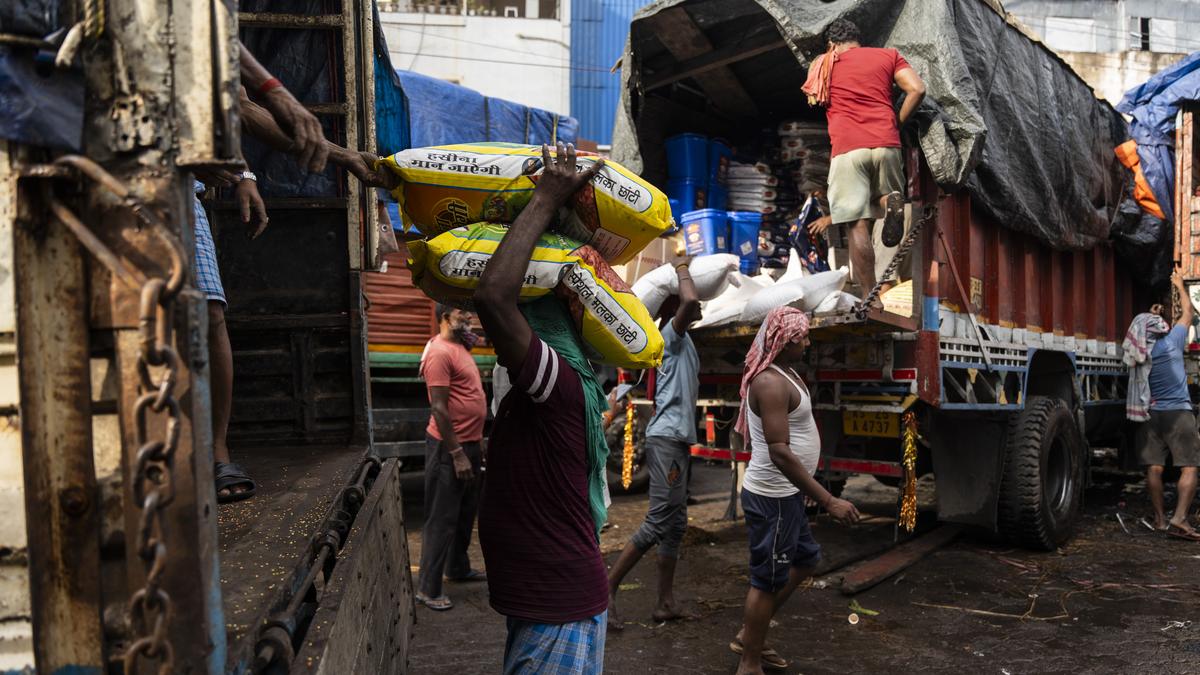
Let us stop judging individuals based on the character of work they perform and start valuing the dignity in each honest day’s labour.
| Photo Credit: Getty Images
They are the ones who clear our highways before dawn, repair our shoes on broken pavement, scrub our drains waist-deep in filth, wire our homes for power, and carry bricks in the sweltering sun. They are the daily-wage earners — plumbers, sanitation workers, electricians, domestic helpers, and chappal stitches — the very people whose hands make our cities work. And these hands, calloused with hard labour, are ignored, undervalued, and treated as being inferior. Why do we respect certain professions and demean others, when all add to our sustenance and comfort?
The discriminatory treatment of labour is not accidental — it is rooted in our social order. In India, the view that some labour is “clean” and some “dirty” is the result of centuries of caste-based discrimination. Service-type and manual labour, especially work related to sanitation, domestic labour, or manual labour, has been assigned to the lower rungs of society. This prejudice has carried on into modern life, where the people who are performing the most necessary work are still considered to be lesser. It is not the work that is degrading — it is our perception that has been corrupted over centuries.
Aside from caste, there is class as well. Urban living has habituated us to being dependent on an invisible army — security men, domestic help, garbage collectors — taken for granted. The more apparent and hi-tech the job, the greater the respect it commands. Do we need to achieve respect depending on education or earning? What about effort, requirement, and contribution?
A few months ago, I encountered Raju, a city sanitation worker from my hometown. Every morning, at 4 a.m., he cleans the streets, picks up trash from small alleys, and unclogs drains with his bare hands — while all the rest of us are still asleep. For performing one of the most important and dangerous jobs, he remains unseen. “They don’t even look at us,” he said, “except when they want to complain.” He doesn’t wear any protective gear, is compensated minimally, and returns home tired — but with quiet dignity. “My work isn’t filthy,” he said softly. “Their minds are.”
Raju’s words hung in the air. His is a not an uncommon tale — it is one related by millions of Indians who toil that keep us alive but none of whom receive credit. From the cobbler on the street to the mason who builds skyscrapers, they are the hands that literally construct our world. Their strength is more than a matter of our convenience — it should be a matter of respect.
It is time we thought about how we place value. An improvement-proud society must learn to honour every profession that benefits its functioning — not just those with degrees and titles. Schools must teach the children that there is no labour beneath them. Media must portray the respect of all work. Governments must grant equal pay and protection to all front-line workers. And as human beings, we must begin by changing our language, our eye, and our thought.
Let us stop judging individuals based on the character of work they perform and start valuing the dignity in each honest day’s labour. A stitched chappal, a swept road, a mended wire — these are not jobs. These are acts of service which support society. The hands which build the nation deserve not only our thanks, but our genuine respect — each and every day.
Published – August 10, 2025 04:02 am IST
